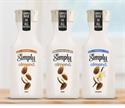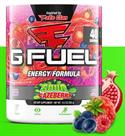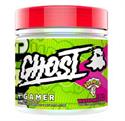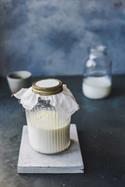Coca-Cola
Coca-Cola HBC Debuts Costa Coffee Products In Europe
Coca-Cola Amatil Plans Plastic Bottle Recycling Plant In Indonesia
 Coca-Cola Amatil has contracted with plastic packaging maker Dynapack Asia to conduct a feasibility study on building a plastic bottle recycling plant in Indonesia. The company hopes to cut consumption of new plastic resin by as much as 25,000 tons a year by 2022 by using recycled plastic. Indonesia is the world’s second-largest marine plastic debris polluter behind China, a 2015 study reported. The country plans to slash plastic waste output by 70 percent by 2025 as its contribution to the global National Plastic Action Partnership (NPAP).[Image Credit: © Coca-Cola Amatil Limited]
Coca-Cola Amatil has contracted with plastic packaging maker Dynapack Asia to conduct a feasibility study on building a plastic bottle recycling plant in Indonesia. The company hopes to cut consumption of new plastic resin by as much as 25,000 tons a year by 2022 by using recycled plastic. Indonesia is the world’s second-largest marine plastic debris polluter behind China, a 2015 study reported. The country plans to slash plastic waste output by 70 percent by 2025 as its contribution to the global National Plastic Action Partnership (NPAP).[Image Credit: © Coca-Cola Amatil Limited]
Coca-Cola Enters North American Plant-Based Milk Space
 Coca Cola has launched in the U.S. and Canada a plant-based milk that contains only filtered water, almonds, cane sugar, natural flavors, sea salt, and vanilla extract. Simply Almond Milk is part of Coca-Cola’s Simply brand of beverages, which includes sugary orange juice and lemonade. Plant-based milk is reportedly the most developed of all plant-based categories in the U.S.: sales increased 14.2 percent in the years from 2017 – 2019 (Good Food Institute). Simply Almond Milk is retailing at $3.99 per 46-ounce bottle and can be found in Target and Kroger stores in the U.S. or Walmart, Safeway, Loblaws, IGA and other major supermarkets in Canada.[Image Credit: © Simply Orange Juice Company]
Coca Cola has launched in the U.S. and Canada a plant-based milk that contains only filtered water, almonds, cane sugar, natural flavors, sea salt, and vanilla extract. Simply Almond Milk is part of Coca-Cola’s Simply brand of beverages, which includes sugary orange juice and lemonade. Plant-based milk is reportedly the most developed of all plant-based categories in the U.S.: sales increased 14.2 percent in the years from 2017 – 2019 (Good Food Institute). Simply Almond Milk is retailing at $3.99 per 46-ounce bottle and can be found in Target and Kroger stores in the U.S. or Walmart, Safeway, Loblaws, IGA and other major supermarkets in Canada.[Image Credit: © Simply Orange Juice Company]
Coca-Cola Adjusts Its Tactics As Recession May Last Longer Than Hoped
 Two months ago, Coca-Cola CEO James Quincey said he expected a V-shaped recovery from the pandemic-caused recession, but was preparing for more of a U-shape. He now sees an extended U, which means "a protracted adjustment coming along" that could require working remotely through the end of summer. Usually, sales are split roughly 50-50 between beverages consumed at-home and those consumed at restaurants, cafes, events, and stadiums. But, despite upticks in beverage sales for at-home and e-commerce, he said it's been "not nearly enough ... to compensate for the away-from-home sales that we're losing." He also noted that given current conditions, it would be both ineffective and "tone-deaf" to spend much on advertising for Q2, so much of the funding is being redirected to "community support actions." He expects an increase in marketing activity and "some channel shifts" in the second half, with a focus on "where does reactivation occur" and lowering price points. [Image Credit: © THE COCA-COLA COMPANY]
Two months ago, Coca-Cola CEO James Quincey said he expected a V-shaped recovery from the pandemic-caused recession, but was preparing for more of a U-shape. He now sees an extended U, which means "a protracted adjustment coming along" that could require working remotely through the end of summer. Usually, sales are split roughly 50-50 between beverages consumed at-home and those consumed at restaurants, cafes, events, and stadiums. But, despite upticks in beverage sales for at-home and e-commerce, he said it's been "not nearly enough ... to compensate for the away-from-home sales that we're losing." He also noted that given current conditions, it would be both ineffective and "tone-deaf" to spend much on advertising for Q2, so much of the funding is being redirected to "community support actions." He expects an increase in marketing activity and "some channel shifts" in the second half, with a focus on "where does reactivation occur" and lowering price points. [Image Credit: © THE COCA-COLA COMPANY]
Danone
Danone’s New Plant-Based Sports Drinks, Powders Debut In China
 Danone is targeting sports enthusiasts and exercise fans in China with a new plant-based sports nutritional beverage Vega One Sport and other Vega One plant protein powders sold online. Vega One has no artificial colors or artificial sweeteners, carries a U.S. non-GMO Certification, and has passed NSF Certified Sport international sports banned substance testing. Danone depends on China for at least ten percent of its global sales achieved a revenue growth of around 2.6 percent worldwide in 2019, The company hopes to increase plant-based sales worldwide from $2.19 billion in 2019 to around $5.5 billion by 2025. According to Nielsen, Danone led the world’s plant-based products in 2018.[Image Credit: © Danone S.A.]
Danone is targeting sports enthusiasts and exercise fans in China with a new plant-based sports nutritional beverage Vega One Sport and other Vega One plant protein powders sold online. Vega One has no artificial colors or artificial sweeteners, carries a U.S. non-GMO Certification, and has passed NSF Certified Sport international sports banned substance testing. Danone depends on China for at least ten percent of its global sales achieved a revenue growth of around 2.6 percent worldwide in 2019, The company hopes to increase plant-based sales worldwide from $2.19 billion in 2019 to around $5.5 billion by 2025. According to Nielsen, Danone led the world’s plant-based products in 2018.[Image Credit: © Danone S.A.]
Nestle
Nestlé SA Tests Refillable Coffee, Pet Food Dispensers, In Swiss Stores
 Nestlé SA is testing reusable and refillable dispensers for soluble coffee and pet food in an effort to reduce the use of single-use packaging. The new dispensers, along with other alternative food and beverage delivery systems, support Nestlé’s goal of achieving 100 percent recyclable or reusable packaging and reducing use of virgin plastic by one third by 2025. For the tests, consumers can bring reusable containers into three Nestlé shops in Switzerland and elsewhere to purchase different types of Purina cat food and Nescafe soluble coffee. Product information typically found on packaging, including ingredients, nutritional values and shelf life, may be accessed digitally.[Image Credit: © THE COCA-COLA COMPANY]
Nestlé SA is testing reusable and refillable dispensers for soluble coffee and pet food in an effort to reduce the use of single-use packaging. The new dispensers, along with other alternative food and beverage delivery systems, support Nestlé’s goal of achieving 100 percent recyclable or reusable packaging and reducing use of virgin plastic by one third by 2025. For the tests, consumers can bring reusable containers into three Nestlé shops in Switzerland and elsewhere to purchase different types of Purina cat food and Nescafe soluble coffee. Product information typically found on packaging, including ingredients, nutritional values and shelf life, may be accessed digitally.[Image Credit: © THE COCA-COLA COMPANY]
Other Companies
G FUEL’s New FaZeberry Flavor Turns Up The Sour

E-sports beverage company G FUEL (Gamma Labs) has collaborated with gaming organization FaZe Clan to introduce a new Sour FaZeberry flavor, a remix of the original G FUEL FaZeberry. The new version combines pomegranates, strawberries, and acai berries with “an extra hit of sourness,” the company said. The new flavor is sugar-free and contains antioxidants from 19 fruit extracts. One serving of G FUEL Sour FaZeberry has 15 calories and contains 140 mg of caffeine along with proprietary energy and focus-enhancing complexes. The new flavor, the seventh variety in FaZe Clan's G FUEL roster, is available in 40-serving tubs and limited-edition collector’s boxes.[Image Credit: © G Fuel LLC d/b/a Gamma Labs]
Beverage Brand Targeting Kids Shifts Its Marketing Strategy
 Juice and flavored water brand good2grow, whose target audience is children, says it has had to adjust its marketing focus now that the pandemic has mostly eliminated the grocery store “nag factor.” Though it’s been “a tough challenge,” the company has shifted its emphasis from children to parents. The new marketing formula combines digital marketing that mixes selling to parents with being a resource for them, “scrappy” in-store displays by a fast-moving sales team, and a new app for children that brings the brand’s products to life as an experience. The adjustment has worked: there’s been a 300 percent increase in online sales and rebounding in-store sales velocity since the pandemic began.[Image Credit: © good2grow LLC]
Juice and flavored water brand good2grow, whose target audience is children, says it has had to adjust its marketing focus now that the pandemic has mostly eliminated the grocery store “nag factor.” Though it’s been “a tough challenge,” the company has shifted its emphasis from children to parents. The new marketing formula combines digital marketing that mixes selling to parents with being a resource for them, “scrappy” in-store displays by a fast-moving sales team, and a new app for children that brings the brand’s products to life as an experience. The adjustment has worked: there’s been a 300 percent increase in online sales and rebounding in-store sales velocity since the pandemic began.[Image Credit: © good2grow LLC]
Ghost Lifestyle Adds AB InBev’s Distribution Muscle To Its Marketing Arsenal

Sports nutrition and dietary supplement brand Ghost Lifestyle has added another partnership to its portfolio, this time with Anheuser-Busch InBev for a new range of ready-to-drink energy and protein drinks. AB InBev will bring to the table its “expertise and distribution muscle,” while Ghost will deliver product innovation and new product development. The company has forged partnerships with Mondelez, Welch’s, and sour candy company Warheads. Ghost is also about to launch Ghost Gamer, a powdered dietary supplement for e-sports enthusiasts that is formulated with nooLVL, Cognizin, and various vitamins, minerals, and bioactives.[Image Credit: © Ghost, LLC]
Animal Study Points To Potential Behavioral Benefits Of Drinking Kefir

As demand for the fermented milk drink Kefir rises, a new APC Microbiome Ireland study in mice reports that two varieties, Fr1 and UK4, had positive effects on the immune system and behavior. The research supports the recent broadening of the definition of psychobiotics to include fermented foods and could optimize future generations of kefir products. The results are among the first to clearly show effects of kefir consumption on behavior. The researchers said it is unclear whether the study results can be replicated in human trials, but more studies on the validation of kefir as a dietary intervention to improve humans’ mood are warranted. [Image Credit: © Anshu A from Unsplash.com]
New Product Launches Featuring Nootropic Ingredients Are On The Rise
 Functional beverage product launches with cognitive enhancing nootropic ingredients are on the rise: between 2015 and 2019 the average annual growth of such launches was 70 percent. In fact, according to Innova, physical and mental health are now equally important to consumers. Among those launches is the new line of “BioTactical Drinks” from U.S.-based Yuno. The drinks, made with more than 100 natural superfood ingredients, are designed to be mixed and matched to promote energy, focus, memory retention, relaxation and improve sleep. The blends available at launch are Energy, Focus, Memory, Uplift, Zen and Dream. Other nootropic and mood-boosting beverage launches include: Koios, Ami Wellness, which targets pain relief for women, and mood33, a line of hemp-infused herbal teas that contain organic, full-spectrum hemp extract. [Image Credit: © Yuno/PR Newswire Association LLC.]
Functional beverage product launches with cognitive enhancing nootropic ingredients are on the rise: between 2015 and 2019 the average annual growth of such launches was 70 percent. In fact, according to Innova, physical and mental health are now equally important to consumers. Among those launches is the new line of “BioTactical Drinks” from U.S.-based Yuno. The drinks, made with more than 100 natural superfood ingredients, are designed to be mixed and matched to promote energy, focus, memory retention, relaxation and improve sleep. The blends available at launch are Energy, Focus, Memory, Uplift, Zen and Dream. Other nootropic and mood-boosting beverage launches include: Koios, Ami Wellness, which targets pain relief for women, and mood33, a line of hemp-infused herbal teas that contain organic, full-spectrum hemp extract. [Image Credit: © Yuno/PR Newswire Association LLC.]
Growing Interest In Gut Health Spurs Innovation Among Beverage Brands
 The growing consumer interest in gut health has encouraged several beverage companies to develop new products targeting that niche. Innova data show an 11 percent rise in food and beverage launches with a digestive health claim, a 17 percent increase in launches with a “probiotic” claim, and a 10 percent growth in launches with a “fermentation” claim. Among the companies offering new products in the space are: U.S. health and wellness brand Friska, which has launched ten dietary supplements featuring digestive enzymes to improve gut health; and R's KOSO, which has launched a version of the traditional Japanese prebiotic drink koso, made by fermenting raw vegetables and fruits.[Image Credit: © Friska Ltd. /PR Newswire Association LLC.]
The growing consumer interest in gut health has encouraged several beverage companies to develop new products targeting that niche. Innova data show an 11 percent rise in food and beverage launches with a digestive health claim, a 17 percent increase in launches with a “probiotic” claim, and a 10 percent growth in launches with a “fermentation” claim. Among the companies offering new products in the space are: U.S. health and wellness brand Friska, which has launched ten dietary supplements featuring digestive enzymes to improve gut health; and R's KOSO, which has launched a version of the traditional Japanese prebiotic drink koso, made by fermenting raw vegetables and fruits.[Image Credit: © Friska Ltd. /PR Newswire Association LLC.]
Copyright 2026 Business360, Inc.

